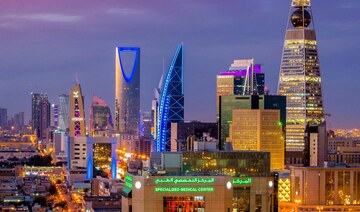Saudi Arabia’s Economy Poised for Substantial Growth Amid Global Uncertainties
The Organisation for Economic Cooperation and Development (OECD) has projected that Saudi Arabia’s gross domestic product will increase from 1.2 percent in 2024 to 3.8 percent in 2025, making it one of the fastest-growing economies within the G20 in the coming years. This forecast comes amid global economic uncertainties, as many advanced economies are expected to face sluggish growth due to escalating trade tensions, geopolitical instability, and inflationary pressures.
Stable Inflation in Saudi Arabia
In contrast to higher inflation rates seen in many major economies, the OECD report forecasts that Saudi Arabia’s inflation will remain low and stable, projected at 1.9 percent in 2025 and 2 percent in 2026. This is a significant achievement for the Kingdom, which has been actively working to diversify its economy under Vision 2030.
Key Factors Driving Saudi Arabia’s Economic Performance
A key factor driving Saudi Arabia’s economic performance is its oil sector, which continues to be a vital growth pillar despite the country’s ongoing efforts to diversify its economy. The OECD report noted that OPEC+ plans to gradually "unwind production curbs" starting in April 2025, a move that could have significant implications for global oil prices.
Global Economic Outlook
Beyond Saudi Arabia, the OECD painted a complex outlook for the global economy. Global GDP growth is projected to slow from 3.2 percent in 2024 to 3.1 percent in 2025 and 3 percent in 2026, with many advanced economies experiencing lower-than-expected growth due to increased trade barriers, inflationary pressures, and policy uncertainty.
US Economy Expected to Slow
The US economy is expected to see growth slow from 2.8 percent in 2024 to 2.2 percent in 2025 and 1.6 percent in 2026, as higher interest rates and trade tensions dampen investment and consumer spending. Similarly, the eurozone’s economy is projected to grow by just 1 percent in 2025 and 1.2 percent in 2026.
Trade Fragmentation and Geopolitical Risks
A key concern highlighted by the OECD is the growing rise of trade barriers and their potential impact on global economic stability. Increasing trade restrictions will contribute to higher costs for both production and consumption, making it essential to maintain a well-functioning, rules-based international trading system and keep markets open.
Monetary Policy and Inflation Pressures
The OECD’s outlook also indicated that inflation remains a significant concern in many economies. While inflation is expected to moderate, it is likely to stay above central bank targets in key economies like the US, the eurozone, and the UK through 2026.
Structural Reforms and Digital Transformation
Beyond trade and monetary policy, the OECD report emphasized the importance of structural reforms and digital transformation in enhancing long-term economic resilience. Governments can help by ensuring the availability of high-speed digital infrastructure, maintaining open and competitive markets, and providing opportunities for workers to enhance their skills.
Conclusion
In conclusion, Saudi Arabia’s economy is poised for substantial growth amid global uncertainties, with its gross domestic product projected to increase from 1.2 percent in 2024 to 3.8 percent in 2025. The Kingdom’s stable inflation rate is a significant achievement, and its efforts to diversify the economy under Vision 2030 will continue to drive economic resilience. However, global economic uncertainty remains a concern, with many economies facing sluggish growth due to escalating trade tensions, geopolitical instability, and inflationary pressures.
The OECD report highlights the importance of structural reforms and digital transformation in enhancing long-term economic resilience. Governments must adopt a balanced approach to fiscal and monetary policies, avoiding excessive tightening of monetary policy that could unnecessarily slow growth. Investing in AI and digital transformation will also be crucial in boosting productivity and driving economic growth.

